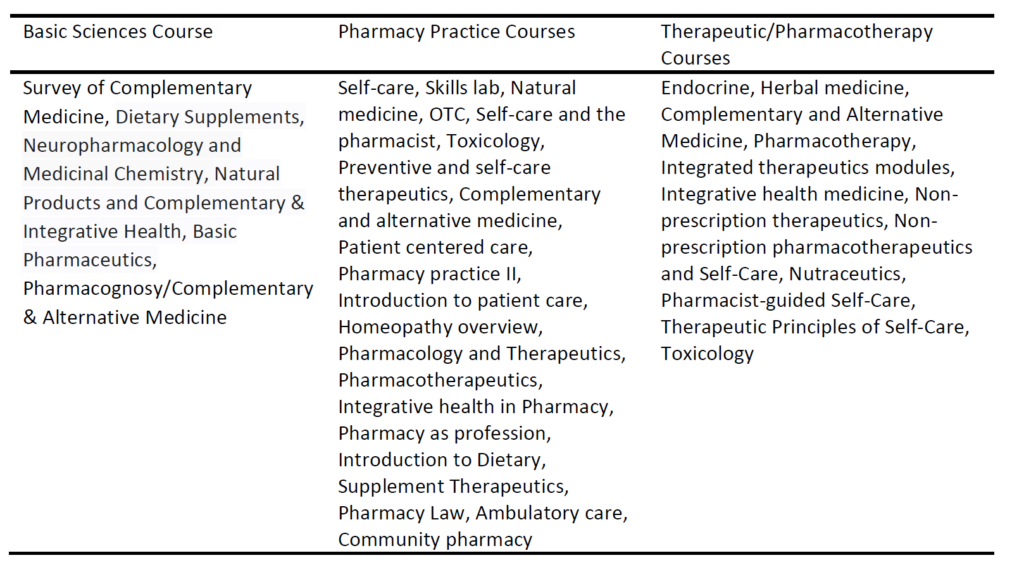
Pharmacists are extremely trusted well being professionals with increasing roles within the well being care system. Your native pharmacist can administer vaccines, modify prescriptions, and will even have restricted prescribing authority. Most pharmacists apply in group (retail) settings, and retail pharmacies are widespread, making extra well being companies extra accessible to sufferers. That is excellent news for sufferers.
In america, nearly all of retail pharmacies are corporately owned, that means the pharmacist is often an worker, and never an proprietor. Unbiased and pharmacist-owned shops do exist, however they’re shrinking in quantity. A consequence of company possession of pharmacies past difficult work circumstances for pharmacists is the shortage of pharmacist affect over retailer practices, together with which merchandise could also be offered within the retailer. As we’ve got seen the scope and significance of the pharmacist develop over the previous few many years, so has the looks of unproven and pseudoscientific merchandise on pharmacy cabinets. Notably, homeopathy is now straightforward to search out in virtually any retail pharmacy.
What we should always count on of pharmacists with respect to homeopathy is the context for a paper that I need to assessment (h/t Dr. Edzard Ernst) about pharmacy training and the instructing of homeopathy to pharmacists. The paper is entitled Instructing Homeopathy in U.S. Pharmacy Colleges and it’s from Esra’a Khader and William R. Doucette on the School of Pharmacy, College of Iowa.
What’s the issue with homeopathy in pharmacies?
Homeopathy is an alternative-to-medicine apply which has continued in use regardless of the shortage of proof exhibiting it has any useful results. Primarily based on the concept that “like cures like” (basically sympathetic magic), proponents of homeopathy consider that any substance could be an efficient treatment if it’s sequentially diluted sufficient: raccoon fur, the fermented duck liver, even items of the Berlin Wall are potential treatments. The extra dilute the treatment, the extra highly effective it’s claimed to be. Typical treatments in use are so dilute that they’re successfully and actually placebos, containing no energetic substances in any respect.
Homeopathy is incompatible with a scientific understanding of drugs, biochemistry, and even physics. Nevertheless, when offered commercially, homeopathic “treatments” appear like standard drugs once they’re stocked on pharmacy cabinets. The advertising and labeling that’s permitted for homeopathic “treatments” in america doesn’t draw consideration to the shortage of energetic substances. Consequently, it will be tough for the typical shopper, who could by no means have heard of homeopathy, to determine that a few of the merchandise on the shelf could also be inert. XKCD highlighted the moral points with homeopathy in pharmacies a number of years in the past (I’ve pasted the hover textual content under):

“I simply observed CVS has began stocking homeopathic drugs on the identical cabinets with–and labeled equally to–their precise drugs. Telling somebody who trusts you that you just’re giving them drugs, when you recognize you’re not, since you need their cash, isn’t simply mendacity–it’s like an instance you’d make up when you needed to illustrate for a kid why mendacity is mistaken.”
The Pharmacist’s Position
Earlier than I dive into the paper, it’s value pausing to ask what we might count on a science-based pharmacist to learn about homeopathy. Given there’s a lack of proof to display that homeopathy is efficient for any situation, and that its underlying rules are basically sympathetic magic, the therapeutic side of homeopathy are simple. There are not any medicinal results.
Since homeopathy could also be offered in a pharmacy (probably in opposition to the desires of the pharmacist), pharmacists want to have the ability to distinguish homeopathic merchandise from standard medicines, and have the ability to reply questions from sufferers about them. Ideally, pharmacists will perceive core ideas of homeopathy in order that they may distinction its concepts with the info of biochemistry, physiology, and pharmacokinetics. Maybe as a part of a module on different types of drugs, and the character and effectiveness of placebo results. With that information, pharmacists could be effectively positioned to supply evidence-based data on the shortage of efficacy for homeopathy and information sufferers to efficient therapies (or at minimal, avoiding pointless expense.)
The Analysis
This new paper from Khader and Doucette was an “explanatory sequential combined strategies method” – successfully a web-based survey adopted by interviews. This was not a survey of pharmacists, however of pharmacist educators. The authors’ acknowledged goals have been to: 1) describe how and which homeopathy matters are taught in US colleges of pharmacy and a couple of) characterize pharmacist roles with sufferers all for utilizing homeopathic merchandise. The authors get off to a shaky begin within the introduction, seemingly reluctant to level out the apparent:
As a result of these fundamental tenets battle with trendy drugs, pharmacology and therapeutics, the effectiveness of homeopathic merchandise could be considered skeptically by many pharmacists.
and
Since homeopathic merchandise are authorized medication within the U.S., pharmacists ought to have a job in assuring their protected and efficient use.
The primary a part of the analysis, the survey, was an e-mail invitation despatched to three,300 pharmacy apply school within the USA. Two follow-up emails have been then despatched. 365 usable responses have been acquired, which was an 11% response charge. Whereas this technique included a number of responses from a single pharmacy college, the authors state that there have been responses from 95.8% of all pharmacy college.
Questions within the survey included school demographics, if homeopathy was taught on the college, the way it was taught, which homeopathic matters have been lined, and the strategies used to show them. Disappointingly, the authors word:
Questions have been developed after reviewing academic assets offered by a homeopathic producer (Boiron USA).
The manufacturer-based framing of homeopathy didn’t lead the researchers to ask probably extra helpful questions on homeopathy. Importantly, if it was being taught uncritically as a apply, or if was being examined from a science-based perspective. Whereas the authors famous that 61% of pharmacy colleges have homeopathy within the curriculum, not sufficient data was collected to find out if this was a vital appraisal, or not:
As regards to programs that included homeopathy matters, 8 (5.8%) had them included in Fundamental Science Programs, 76 (55.5%) in Pharmacy Apply Programs, and 53 (38.7%) in Pharmacotherapy Programs.
Listed here are the titles of programs cited. Whereas a few of these could be vital in nature, it’s not clear for others.

Within the second a part of the research, 19 pharmacy school concerned in instructing homeopathy have been interviewed from 18 colleges of pharmacy. Via these interviews, roles and themes associated to homeopathy have been recognized:
- Pharmacists’ preparedness to information sufferers for utilizing homeopathic merchandise.
- Themes: 1) acknowledge the distinction between homeopathic and allopathic (sic) or natural merchandise, 2) counsel the sufferers effectively and three) the pharmacist must be educated.
- Guarantee sufferers are getting advantages from utilizing homeopathic merchandise.
- Themes: 1) prioritize sufferers’ security, 2) homeopathic treatments’ effectiveness and three) triage the affected person for the very best use of homeopathy.
- Speaking correctly with sufferers.
- Themes: 1) preserve your relationship with sufferers, 2) hearken to, respect, and information sufferers and three) acknowledge that homeopathic merchandise can be found.
Sadly, there may be not sufficient data from the interview abstract to discern if the approaches being taken a pharmacy colleges is vital or not. Whereas a few of the feedback extracted from the interviews counsel that is occurring, others don’t.
Are pharmacy college students critically appraising homeopathy?
Homeopathy has no place in science-based pharmacy apply, however the actuality is that it’s being offered in pharmacies and drug shops. Pharmacists will inevitably be requested about their appropriateness and place in remedy. Whereas homeopathy seems to be within the curriculum in a majority of American pharmacy colleges, it’s not clear if it’s being examined from a science-base perspective, or if pharmacists are being taught the way to critically appraise the accrued proof that demonstrates it presents no significant well being advantages. Understanding what pharmacy college students are studying about homeopathy is a worthy matter. Sadly, this paper gives restricted helpful data on the topic, focusing extra on the query “is homeopathy being taught” and never what is definitely being taught. As they are saying, extra analysis is required.
